Die casting machine hydraulic pump crack include mechanical stree and thermal stree, material properties and others.
Die casting machine hydraulic pumps are subject to mechanical stress and thermal stress during operation. Mechanical stress mainly comes from friction and load changes between the moving parts of the hydraulic pump, while thermal stress is related to excessively high hydraulic oil temperature.
The reasons why hydraulic pumps crack in die casting machines may involve many aspects, including mechanical stress, thermal stress, material properties, and operating conditions of the hydraulic system. The following are some specific reasons that may cause hydraulic pump cracks:
- Mechanical stress and thermal stress
- Superposition of mechanical stress
- Material properties
- Hydraulic system operating conditions
- Improper maintenance and operation
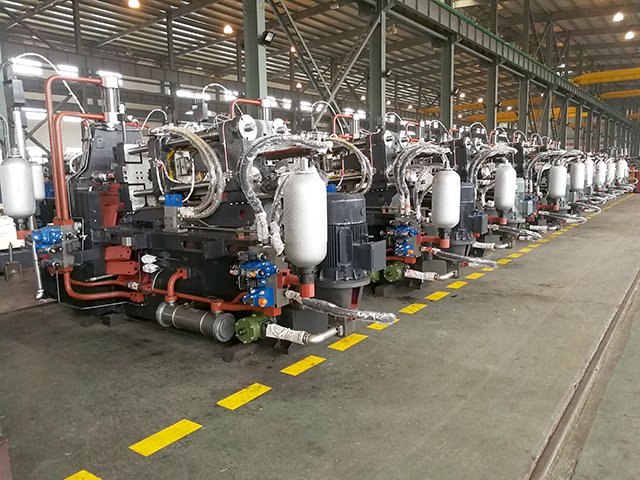
Mechanical stress and thermal stress of hydraulic pump crack
- Origin of thermal fatigue cracks
- Crack propagation mechanism
- Further explanation
- Influence of temperature gradient
If the hydraulic oil temperature exceeds 50°C, it will cause changes in the hydraulic oil characteristics, increase internal leakage of the cylinder and valve, and thus affect the stability of the working pressure. In addition, thermal stress will also cause compressive stress and tensile stress on the surface of the hydraulic pump. The repeated action of these stresses may lead to material fatigue and crack formation.
Origin of thermal fatigue cracks
- During the die casting cycle, the mold surface undergoes periodic heating (contact with molten metal) and cooling (mold release spraying), resulting in alternating thermal stress in the surface layer. Compressive stress is generated in the high temperature stage, and converted to tensile stress in the cooling stage, and repeated action induces plastic deformation
- When the local stress exceeds the yield strength of the material (especially in the area of geometric mutation and stress concentration), the surface undergoes plastic deformation, and microcracks are generated after accumulating damage.
Crack propagation mechanism of hydraulic pump crack
- The tensile stress in the cooling stage is the main driving force for crack propagation.
- It is clearly pointed out that if there is no tensile stress, thermal fatigue cracks will neither initiate nor propagate.
Further explanation
During cooling, the surface shrinkage is constrained by the internal material, forming tensile stress; if it exceeds the elastic limit of the material, the surface undergoes plastic deformation, and a network of microcracks (i.e. cracks) are formed after multiple cycles.
Influence of temperature gradient
- It is pointed out that the temperature gradient is the direct cause of crack formation.
- For example, when the temperature gradient reaches 1.22E-10 °C/mm, the local stress of the aluminum/magnesium alloy mold can reach 446-448 MPa, which exceeds the typical tensile strength of H13 steel (~400 MPa) and induces cracks.

Superposition of mechanical stress
- Hydraulic system load
- Structural stress transmission
- Stress concentration effect
Hydraulic system load
- The hydraulic pump provides clamping force and injection pressure during the die casting process.
- The hydraulic system applies mechanical load through the pressure regulator. If the pressure fluctuates or the peak value is too high, it may directly cause the pump body structure to crack.
Structural stress transmission of hydraulic pump crack
- The plunger is a direct force-bearing component that bears axial mechanical pressure.
- The uneven temperature distribution on the plunger surface (high temperature at the bottom and low temperature at the top) leads to differences in circumferential thermal stress.
- After superposition with mechanical stress, high composite stress is formed in weak areas (such as material defects and geometric mutations). If the hydraulic pump is tightly connected to the plunger structure, the stress may be transmitted to the pump body.
Stress concentration effect
Sharp transitions, grooves and other geometric features will significantly amplify local stress. Experiments show that the crack depth of a low-hardness mold (42 HRc) reaches 0.37 mm after 10,000 cycles, and the crack size is positively correlated with the degree of stress concentration.
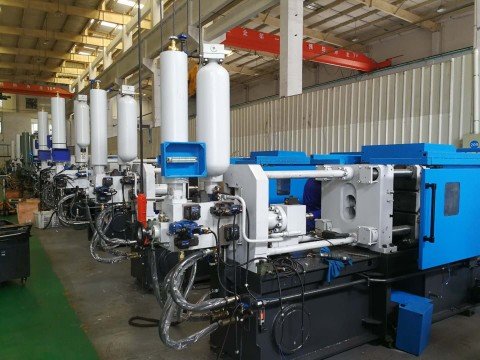
Material properties of die casting machine Hydraulic pump crack reasons
- Material performance limitations
- Chemical corrosion promotion
The material of the hydraulic pump fails to meet the design requirements, it may also cause cracks. For example, poor sealing conditions of the pump shaft or insufficient material strength will increase the risk of cracks.
Material performance limitations
- Pointed out that low fracture toughness materials are prone to catastrophic fracture (gross cracking) at low temperatures or high stresses.
- Furthermore, it is explained that surface residual tensile stress (such as caused by improper heat treatment) will accelerate the growth of thermal fatigue cracks.
Chemical corrosion promotion
- It is mentioned that molten metal and lubricants in the die casting environment may induce stress corrosion cracking (SCC), especially fine cracks in the tensile stress area. Melt adhesion and chemical erosion will reduce surface strength and aggravate mechanical stress damage.
- In addition, cracks in hydraulic pump castings are usually caused by the shrinkage stress of the metal exceeding the ultimate strength of the material during cooling and solidification.

Hydraulic pump crack reasons: Hydraulic system operating conditions
- Excessive or low operating pressure in the hydraulic system may cause damage to the hydraulic pump.
- For example, reverse installation of the hydraulic pump or improper adjustment of the overflow valve will cause abnormal system pressure, which will cause excessive mechanical stress on the pump body.
- In addition, improper temperature control of the hydraulic system will also accelerate the aging of the seals and the deterioration of the hydraulic oil, further aggravating the damage to the pump body.
Improper maintenance and operation of hydraulic pump crack
- Improper maintenance or operating errors of hydraulic pumps may also cause cracks. For example, high hydraulic oil temperature, oil contamination or aging of seals will increase the risk of damage to the pump body.
- In addition, pressure fluctuations in the hydraulic system may also cause fatigue damage to the pump body.
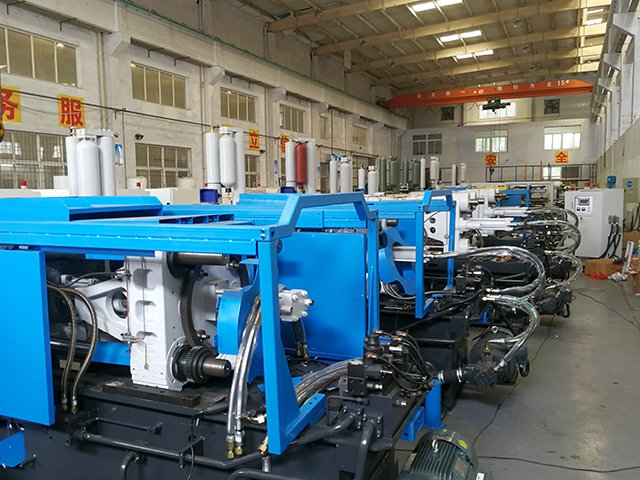
Thus, there may be many reasons for cracks in the hydraulic pump in the die casting machine, including mechanical stress, thermal stress, material properties, operating conditions of the hydraulic system, and improper maintenance and operation. In order to prevent the occurrence of cracks, it is recommended to regularly check the pressure and temperature of the hydraulic system, ensure the quality and cleanliness of the hydraulic oil, and strictly follow the operating specifications for maintenance and use.
Haichen die casting machine
Haichen is one Chinese die casting machine manufacturer for more than 10years. We produce both high pressure cold chamber die casting machine and hot chamber die casting machine. They have durable and highly precise features.
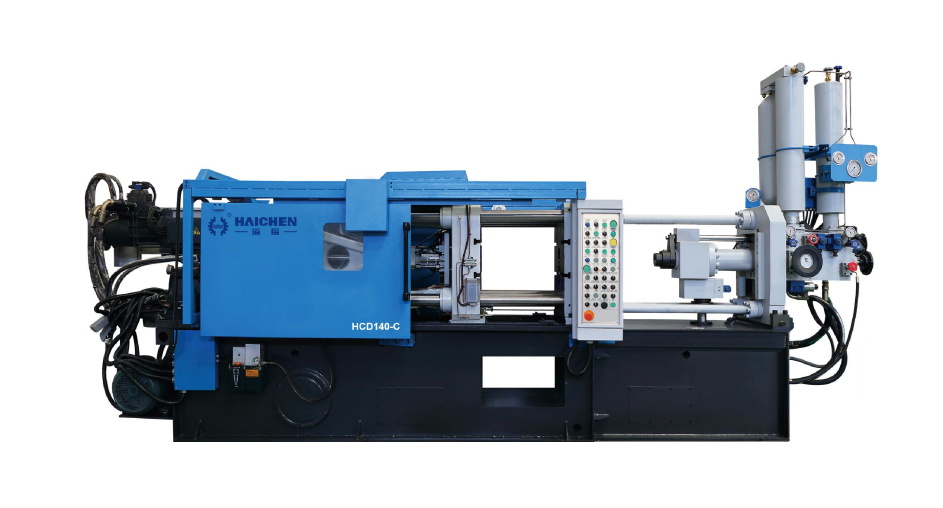
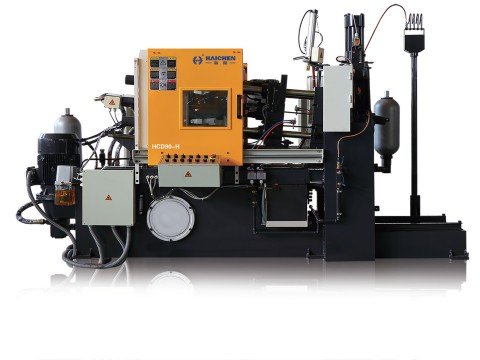
Haichen also produce die casting machine auxiliary equipment. Such as conveyor, vacuum machine, mold temperature controller, industrial robot, sprayer and so on.
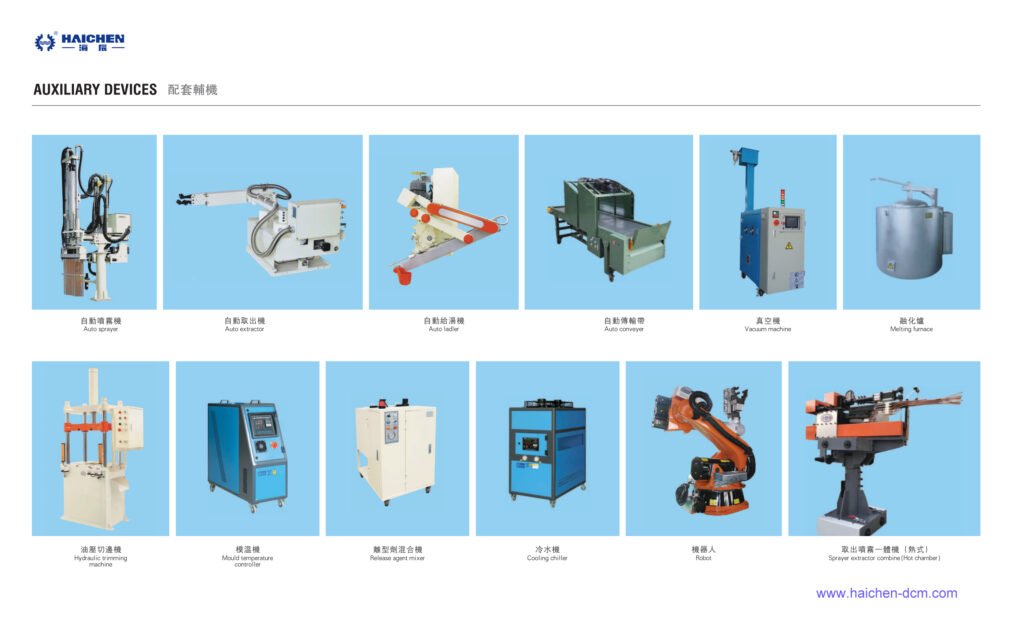
We supply cold chamber and hot chamber die casting machine spare parts.
Welcome contact us.



